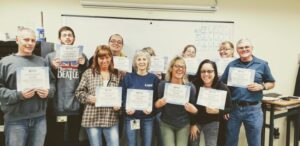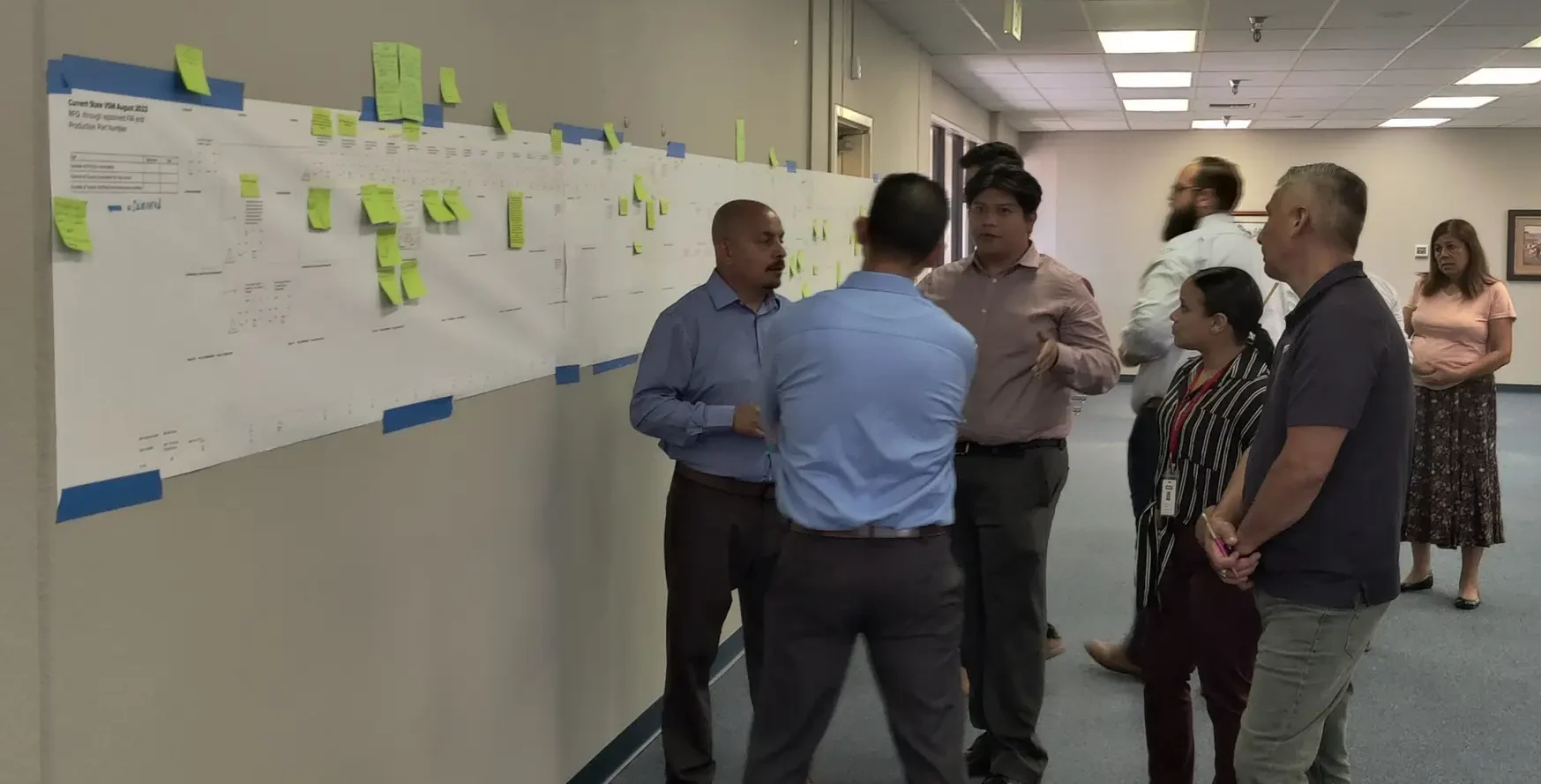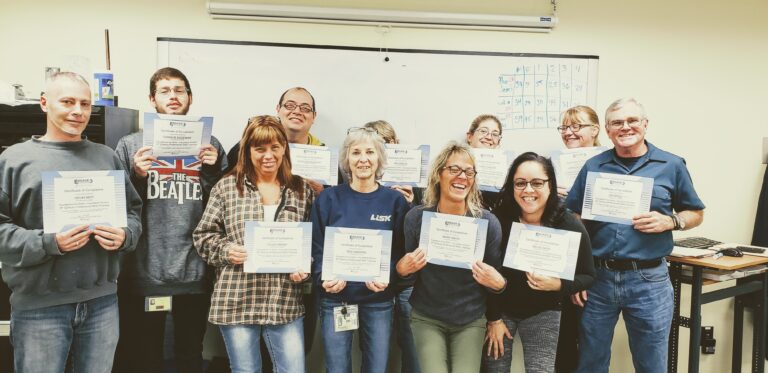The WDI 2018 Annual Impact report noted that our Rochester/Genesee Valley Regional Director, Lynn Freid, was working on a project to pilot a soft skills program in NYS that had been developed and seen success by the California-based non-profit, New World of Work (NWoW). NWoW is affiliated with the CA-based community college system and in 2012 began tracking futurist projections, economic reports, and national research related to the correlation between education and employment. Via a set of Skills Panels, NWoW staff gathered feedback from employers, entrepreneurs, human resources specialists, educators, and students to determine the essential employability skills required in the emerging global economy. The result was the creation of a “Top 10” list of essential 21st-century employability skills, and the development of a curriculum to gain these skills. The curriculum has seen significant success with CA employers, and so Lynn and Lisa Rawcliffe from local partner Engage Forward went to CA to be trained on the system.
This past winter Lynn and Engage Forward worked with GW Lisk in Clifton Springs (Ontario County) on a program to try out the NWoW curriculum. Critical elements of the program were contextualized for a manufacturing work environment. The program also included introduction to a problem-solving method called “Improvement Kata”. The results of the pilot are now in and reinforce the findings from CA – the program works!
Specific topics covered included the following:
- Adaptability
- Resilience
- Empathy
- Analysis/Solution Mindset
- Communication
- Social/Diversity Awareness
- Collaboration
- Introduction to Toyota
- Entrepreneurial Mindset
- Improvement Kata
- Self-Awareness
The course was delivered in two-hour increments over nine (9) weeks. The training was interactive and included videos, activities, and simulations to expand understanding and application of each skill. Students completed both pre- and post-training self-evaluations for each of the skills. The employer (Lisk) also evaluated the skill levels of each student before and after training.
The Percentage Improvement Scores noted by the Employer were as follows:
- Adaptability (Open to Change)- 86% Improvement
- Analysis /Solution Mindset (Problem Solver)- 80% Improvement
- Collaboration (Team Player)- 82% Improvement
- Communication (Good Communicator)- 80% Improvement
- Empathy (Sensitive to Others’ Feelings)- 50% Improvement
- Entrepreneurial Mindset (Go Getter)- 114% Improvement
- Resilience (Plans for Success/Bounces Back from Failure)- 59% Improvement
- Self-Awareness (Self Understanding)- 79% Improvement
Interestingly, pre and post self-evaluation results by the students themselves were different. The student survey results reflect a modest improvement overall. However, many of the students self-assessed themselves with decreasing scores on one or more individual competencies. According to NWoW, this has been typical of what they’ve found in CA as well. Historically, they’ve seen Employers note significant increases in skills while the Employees do not. This difference has been attributed to the Employee suddenly becoming much more aware of the importance of the skills in the workplace, and therefore critical of his or her own skills. This too can be viewed as a success in terms of students gaining a significant understanding of the importance of the skills.
Next Steps: WDI is using the curriculum in a few other places in the Rochester/Genesee Valley, including the Construction sector. We are considering other possible places where the insertion of this curriculum into other curriculums (manufacturing apprenticeships, for example) might make sense.




